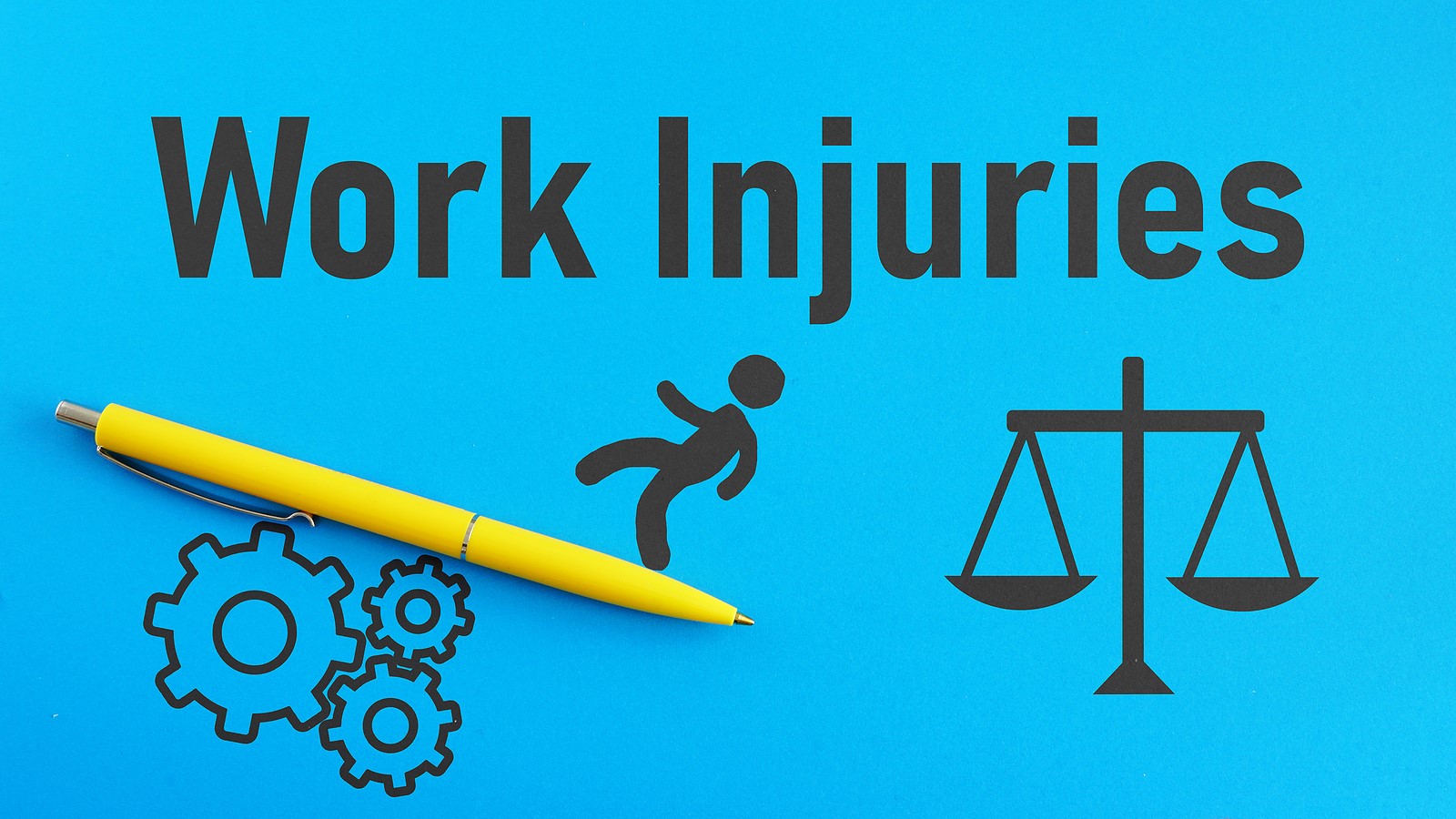
Work-related injuries top the list of reasons to visit the emergency room. Work injuries can range from minor to major, but they all have one thing in common: they can impact your ability to do your job. If you are injured at work, it is essential to seek medical attention right away. Here are the five most common workplace injuries resulting in an ER visit.
5 Most Common Work-Related Injuries
Slips, Falls, and Tripping
According to the National Safety Council (NSC), overexertion, physiological response, and slips, trips, and falls are the top three reasons for work-related injuries. According to the NSC, these are responsible for an astounding 84 percent of all nonfatal workplace injuries. (Foulis) Falls are most common among those who work at heights, while falls and slips are more likely to happen when there are congested environments, uneven walking surfaces, wet or greasy surfaces, or areas that are icy or snowy.
Stress and Overexertion
In the US, sprains, strains, and tears account for 266,530 workplace injuries in 2020. (Boskamp) Most industries are highly concerned about musculoskeletal diseases (MSIs), from office workers who risk acquiring carpal tunnel syndrome to those using large machinery on construction sites.
Being Struck by or Caught In Machinery
According to a report from 2016, these occurrences, which are most common in the construction industry, were responsible for 13% of workplace fatalities over the previous 10 years. (Foulis) The risks include being run over, squashed between two things, or struck by debris that construction equipment is moving.
Vehicle-related Accidents
Automobiles are the first or second largest cause of death in every important industry sector in the U.S. Work-related crashes claimed the lives of 1,276 American drivers or passengers on public roads in 2018, making up 24% of all fatal workplace accidents. (Foulis)
Fire and Explosion
Although they only cause 3% of occupational injuries, explosions and fires cause the most fatalities of all industrial mishaps.
(Foulis)
What to Do When There is a Work-related Injury
Here are some steps you must follow regarding a work-related injury.
- You have 30 days to notify your employer of an injury when it occurs or from the time you become aware that it is related to your job. You may not be eligible for benefits if you don’t notify your employer about your injuries within 30 days.
- To preserve your rights, you must submit a finished DWC Form-041, Employee’s Claim for Compensation for a Work-Related Injury or Occupational Disease, to The Division of Workers’ Compensation (DWC) within one year after the incident. Call the Texas Department of Insurance (TDI) a week or two after submitting the form to confirm receipt.
- Call TDI’s customer care at 1-800-252-7031 to get additional information about your rights and obligations.
(Texas Department of Insurance)
Where to Go for Worker’s Comp Questions
Small businesses might not be prepared for a work-related accident until it occurs. The injured employee must receive proper emergency medical attention, which is a crucial part of the employer’s responsibilities. Employees can find resources on the TDI page at https://www.tdi.texas.gov/wc/employee/index.html if they are unfamiliar with Texas’ worker’s compensation system.
You can get the forms and information you need if you have a worker’s compensation injury. Inform your employer of the illness or injury. DWC will give you a bundle containing the following documents:
- Injury notice letter (CS-41)
- Employee’s Claim for Payment for a Work-Related Injury or Occupational Disease, DWC Form 041
- Employee rights and obligations after an injury
- Return to work details
- Checklist for injured employees
If you are an employee, call DWC at 800-252-7031, option 1, if you don’t receive a packet or need assistance with your claim.
A variety of typical work-related injuries can occur in any workplace. By understanding the most common types of these injuries, you can take steps to prevent them from happening in your own workplace. Implementing safety protocols and training employees to avoid these injuries can help create a safer work environment.
Works Cited
Foulis, Maia. “The Five Most Common Types of Workplace Injuries.” Canadian Occupational Safety, Canadian Occupational Safety, 15 Nov. 2021, www.thesafetymag.com/ca/topics/safety-and-ppe/the-five-most-common-types-of-workplace-injuries/316462.
“Injured Employee FAQ.” Texas Department of Insurance, www.tdi.texas.gov/wc/employee/iefaqe.html.
“Injured Employee Resources.” Texas Department of Insurance, www.tdi.texas.gov/wc/employee/index.html.
Boskamp, Elsie. “30 Shocking Workplace Injury Statistics [2022]: Slips, Trips, and Falls in the Workplace.” Zippia 30 Shocking Workplace Injury Statistics 2022 Slips Trips And Falls In The Workplace Comments, Zippia, 24 Oct. 2022, www.zippia.com/advice/workplace-injury-statistics/.
